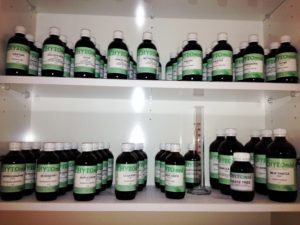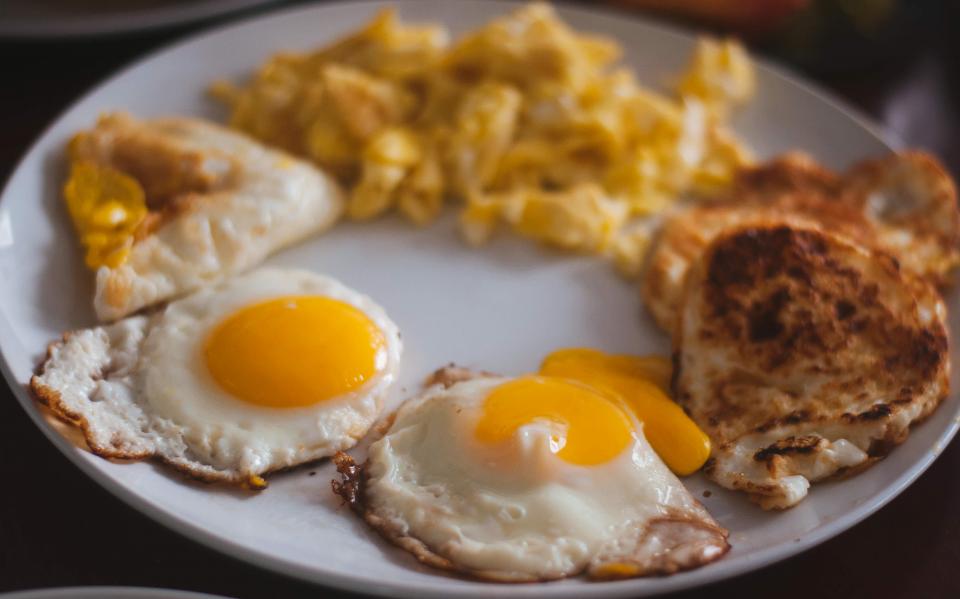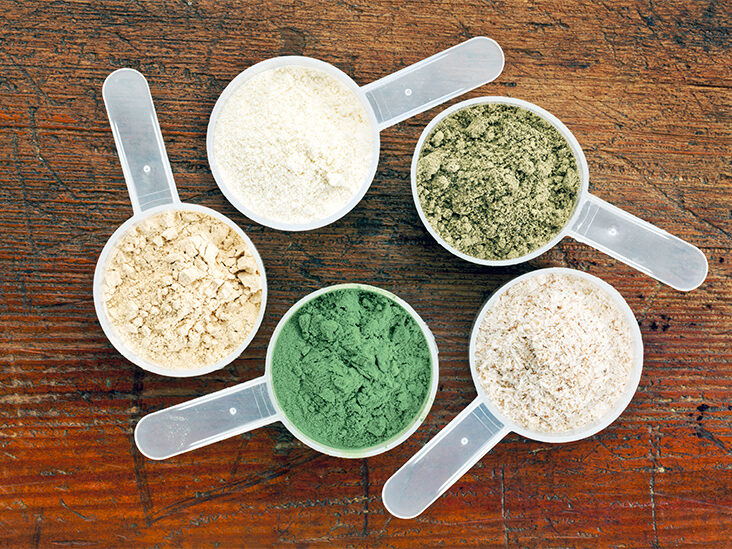Our liver synthesises 1000-1400mg (about 80%) of our cholesterol on a daily basis. While 300mg is the upper limit of our recommended daily intake (RDI). Our liver has an intelligent feedback mechanism which regulates our endogenous production, in response to our dietary intake. In simpler terms, when we eat more cholesterol, our liver down-regulates its production, and vice versa.
Cholesterol is only found in animal products i.e. meat, dairy, eggs and seafood. Plants contain phytosterols, a cholesterol-like compound.
High density lipoprotein (HDL) and low density lipoprotein (LDL) are cholesterol transporters. HDL is known as the good guy, he transports cholesterol from blood circulation back to the liver to be excreted. On-the-other-hand, LDL is known as the bad guy, he transports cholesterol from the liver to the body. Research now tells us that larger LDL particles are less problematic than small particles as they are less likely to get stuck in the crevices and cause damage. Measurement of LDL particle size is not yet available in NZ. Read more about ideal cholesterol numbers and blood tests (beyond cholesterol) that are recommended to assess heart health.
Causes:
Genetics – familial hypercholesterolaemia (inherited high cholesterol) affects about 1 in 500 people. It often presents as very high LDL. Cholesterol often deposits in the skin and tendons. Only 10-20% of people with this condition are diagnosed. If left untreated, about 85% of men and 50% of women will have a heart attack, stroke or cardiac arrest before the age of 65. Children of these individuals have about a 50% chance of inheriting the condition. People with this condition may not effectively respond to natural treatment, therefore, statins may be inevitable. However, natural treatment should always be the first port of call.
Smoking causes a significant amount of oxidation and rapidly consumes antioxidants. Oxidation is the process by which an apple turns brown and metal rusts. Free radicals damage blood vessels and play an important role in the formation of atherosclerotic plaques. A healthy amount of cholesterol is good because it mends the damage done by the free radicals. Cholesterol acts as a band-aid by covering lesions in arterial walls. The problem is that cholesterol is sticky and more cholesterol sticks to the damaged site as it passes in the bloodstream. The extra cholesterol that has been stuck can be removed by HDL and transported back to the liver to be eliminated. However, if high LDL is present, cholesterol continues to stick and form a build-up. The original damage that birthed this process cannot be reversed. Other sources of free radicals include pollution, chemical exposure, inflammation, radiation, some medications, stress and chronic cardio/over exercise.
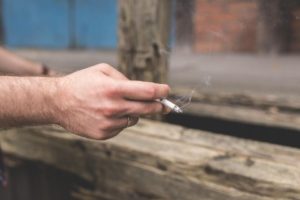
Antioxidants are measured on the Oxygen Radical Absorbance Capacity (ORAC) scale. Eating foods high on this scale provides a high dose of antioxidants. Many herbs and spices come out top, although we only eat them in small quantities. After this, the more common foods are acai, cacao, chia seeds, berries and nuts. Antioxidants neutralise free radicals, which prevents the original damage. One way to consume lots of antioxidants on a daily basis is to Eat a Rainbow every day.

Statins are HMG-CoA reductase inhibitors. HMG-CoA is an enzyme in the pathway of synthesising cholesterol. They are the most common class of drugs prescribed to lower cholesterol, and one of the most prescribed drugs in the world. There is no denying that statins are effective at their job, however, they do not come without side effects…
CoQ10 synthesis is blocked by statins. CoQ10 is downstream from HMG-CoA reductase. CoQ10 is an endogenous antioxidant and play a significant role in the generation of cellular energy. CoQ10 helps in the generation of adenosine tri-phosphate (ATP) and energy. Most side effects of statins are due to CoQ10 deficiency, including low energy, muscle weakness/pain, even heart failure and high blood pressure. CoQ10 supplementation is recommended when statins are taken.
Vitamin K to K2 conversion is inhibited by statins. Vitamin K is required for health blood clotting, building strong bones and preventing heart disease (by facilitating calcium absorption into bone rather than deposited in the arteries). Interestingly, the sites in the body where statin-related adverse effects most commonly occur, are typical storage sites for vitamin K. These areas are the brain, kidneys, pancreatic beta cells and muscles. Sources of vitamin K include leafy green vegetables, prunes, cucumber, soy beans, olive oil and fermented foods.
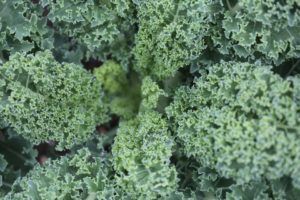
Vitamin D synthesis in the skin upon UV exposure requires cholesterol. Cholesterol is the precursor to vitamin D, which are both hormones. Statins may impair vitamin D production. Vitamin D enhances immunity, supports gut integrity and builds strong bones, to name just a few of its vital functions. Our primary source of vitamin D is the sun, small amounts are also found in cod liver oil, oily fish, liver, eggs and mushrooms.
Sex hormones are produced from cholesterol. Cholesterol is the precursor testosterone, oestrogen and progesterone. Statin therapy may reduce hormone levels. Testosterone deficiency is associated with poor muscle development, low libido, low bone density and thinning hair in males. Boost testosterone by weight training, sprinting, reducing stress, vitamin D supplementation, eating good fats, balancing blood sugar/reducing insulin, and zinc supplementation. Oestrogen deficiency is associated with imbalanced blood sugar and low bone density, especially in post-menopausal women. Boost oestrogen by reducing stress and eating foods high is phytoestrogens, including soy beans e.g. tofu (especially fermented soy e.g. tempeh and miso), flaxseeds, alfalfa, yams, and many wholegrains and legumes. Phytoestrogens mimic oestrogen in our body as they are plant replicas.
Natural Treatment:
The liver is responsible for processing cholesterol. When it is overloaded, cholesterol is recycled back into the bloodstream rather than eliminated. Check out my Liver Detox Tonic and Top 10 Tips to Detox Your Liver Blog.
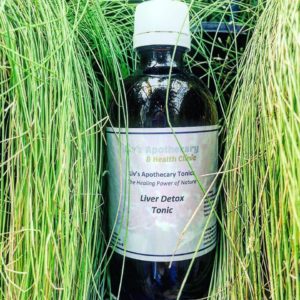
Omega 3 increases HDL cholesterol, which shows a more favourable cholesterol ratio. People who follow a Mediterranean diet have high HDL than Westerners due to their high fish intake. Animal sources of omega 3 are salmon, sardines, mackerel, anchovies and other fatty fish. Plant sources of omega 3 are walnuts, flaxseeds, chia seeds and hempseeds (and their oils). Animal sources are more bioavailable (easily absorbed) than plant sources.
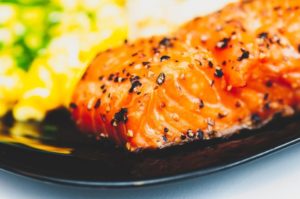
Green tea may lower LDL and increase HDL cholesterol, but you need to drink a lot to reap the benefits. Benefits peak at around 10 cups per day (drink in place of water).
Fibre can lower cholesterol by preventing reabsorption of fibre from the bowel. People with constipation or slow transit time are more likely to have high cholesterol. Include a wide range of plants in your diet to obtain adequate fibre, from fruit vegetables, wholegrains, legumes, nuts and seeds.
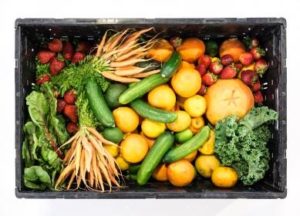
Oats contain a constituent called beta-glucan. This natural plant compound is known to reduce LDL cholesterol. Whole oats, rolled oats and oat bran all contain beta-glucan. Oats are versatile, they can be used in porridge, muesli, cereal, healthy bars, homemade fruit crumble and smoothies.
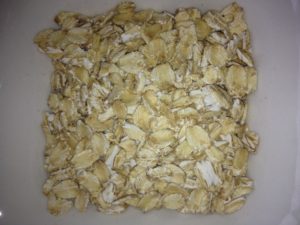
Phytosterols are naturally found in plant foods like fruit, vegetables, wholegrains, legumes, nuts and seeds. Plant sterols are found in “cholesterol-lowering” margarines, however, natural sources are recommended.
Olives and olive oil are high in monounsaturated fats and also form a large component of the Mediterranean diet. Monounsaturated fats are known to lower LDL and total cholesterol. Olive oil is best used unheated on salads and to drizzle on vegetables. The fats may be damaged at high temperatures. Use 2-3 tablespoons of olive oil and eat a handful of olives every day.
Avocado and avocado oil contain monounsaturated fat, phytosterols, fibre and antioxidants, like olives and olive oil. Eat ½ – 1 avocado every day.
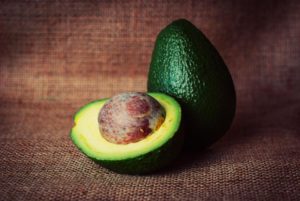
Nuts e.g. almonds, walnuts, hazelnuts, pecans, pistachios, cashews, macadamias and brazil nuts (2-3 a day) may increase HDL and decrease LDL cholesterol. Eat a handful of mixed nuts every day, or add them to your breakfast, bliss balls or healthy baking.
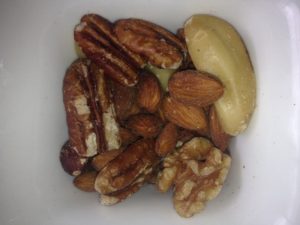
Garlic effectively lowers LDL cholesterol. Raw garlic may be more beneficial. It can be eaten or taken as a supplement if you prefer to avoid the effects on your breath.
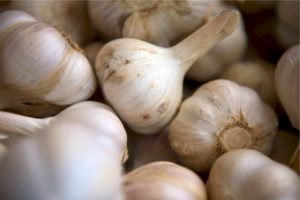
Exercise is known to improve cholesterol readings. Exercise, specifically weight training and High Intensity Interval Training (HIIT), boost human growth hormone (HGH). HGH increases HDL, lowers LDL and improves health in general. Additionally, exercise aids weight loss, which supports cholesterol levels and heart health.

Herbs that support the liver may improve cholesterol levels by aiding detoxification. These include Milk thistle, Globe artichoke, Dandelion, Schisandra, Andrographis, Bupleurum and Rosemary. Check out my Liver Detox Tonic. Consult with me to be prescribed Herbal Medicine.
